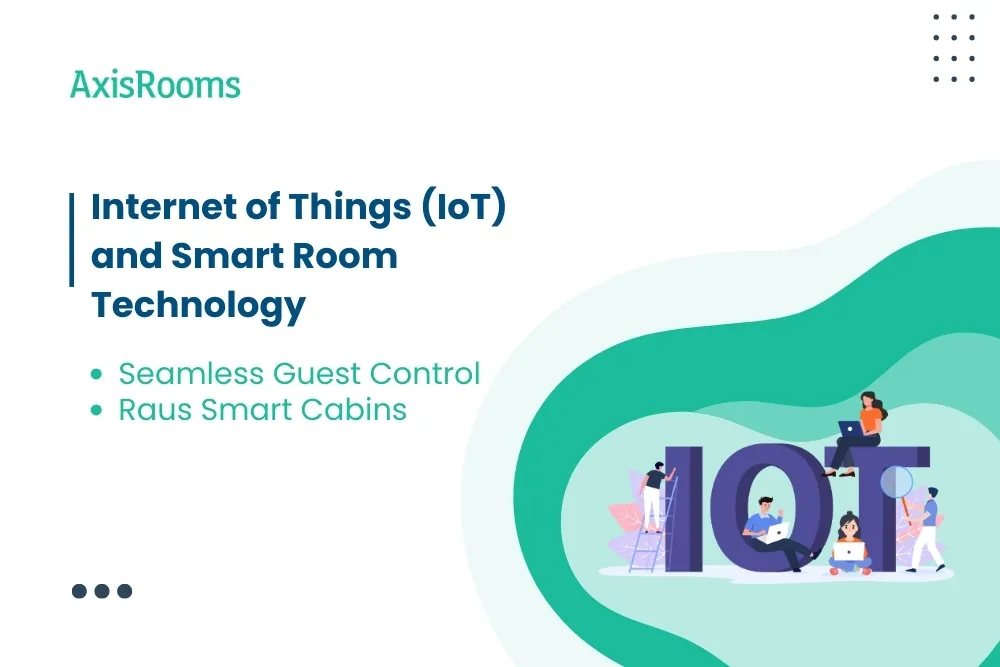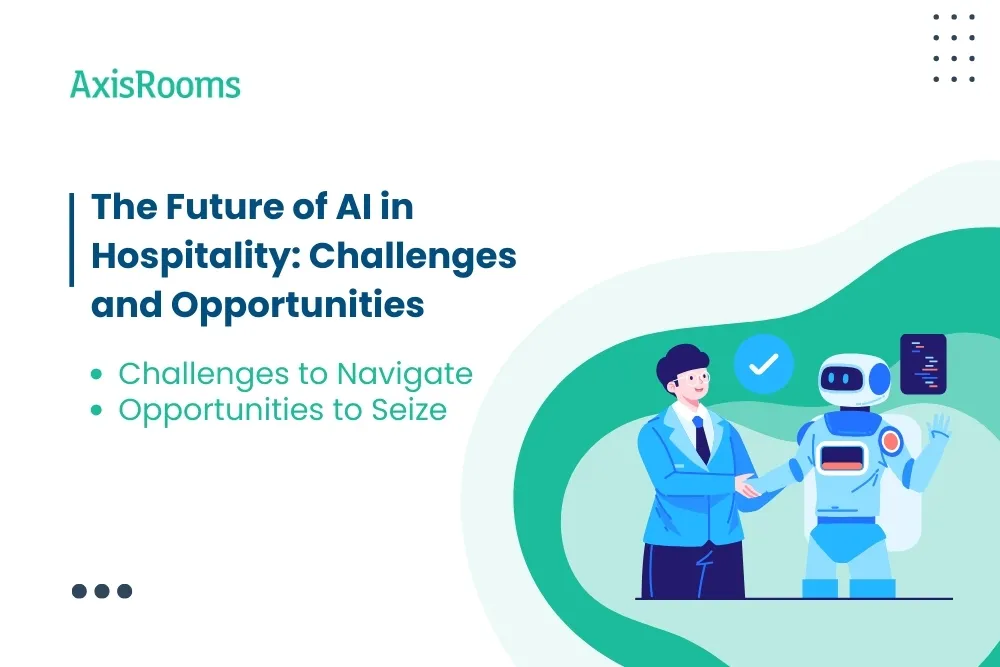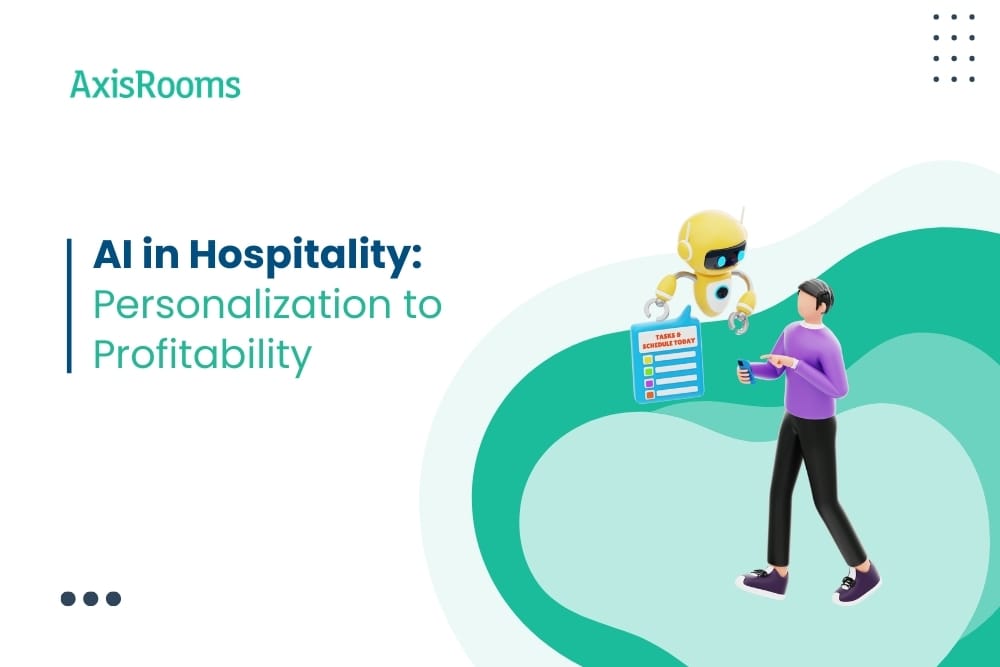The landscape of the hospitality industry is undergoing a dramatic transformation, driven by the rapid advancements in Artificial Intelligence (AI). As we look towards 2025, AI is no longer just a buzzword but a fundamental force reshaping how hotels, resorts, and travel businesses operate and interact with guests. Let's explore the cutting-edge AI trends that are set to define the hospitality sector in the coming years.
AI-Powered Personalization: Beyond the Basics
Hyper-Personalized Guest Experiences
AI is taking personalization to new heights, moving far beyond simple chatbots. In 2025, AI systems are anticipated to offer hyper-personalized experiences based on individual preferences, past behaviors, and real-time data analysis.
- Predictive Analytics: AI algorithms will forecast guest needs and preferences, allowing hotels to tailor services proactively.
- Dynamic Pricing: AI-driven systems will optimize room rates in real-time based on demand, competitor pricing, and individual guest value.
- Customized Marketing: Ultra-niche or even 1:1 communication will become the norm, with AI crafting personalized offers and recommendations for each guest.
AI Concierge Assistants
Leading hotel chains like Marriott and Hilton are at the forefront of AI implementation:
- Hilton's Connie: This AI-powered robot can answer over 10,000 common questions about reservations, amenities, and local attractions, providing 24/7 automated support.
- Marriott's AI Concierge: Capable of natural conversations in multiple languages, this system can book services, provide tailored destination tips, and explain loyalty programs.
Internet of Things (IoT) and Smart Room Technology

Seamless Guest Control
The integration of IoT devices is creating a new standard for in-room experiences:
- Voice-Controlled Environments: Guests can adjust lighting, temperature, and entertainment systems using voice commands.
- Personalized Room Settings: AI remembers guest preferences and automatically adjusts room conditions upon arrival.
- Predictive Maintenance: IoT sensors alert staff to potential issues before they become problems, ensuring a smooth stay for guests.
Raus Smart Cabins
Raus, a pioneer in remote luxury accommodations, showcases the potential of IoT in hospitality:
- Fully Connected Cabins: These smart homes offer guests unparalleled control over their stay through mobile apps and voice controls.
- Adaptive Tech Solutions: Raus demonstrates how IoT can be applied to diverse hospitality settings, from urban hotels to remote getaways.
AI in Operations and Revenue Management
Streamlined Efficiency
AI is revolutionizing back-end operations, leading to significant improvements in efficiency and decision-making:
- Automated Check-In/Out: AI-driven systems are enabling "user-interface-less" hotel operations, streamlining processes like bulk guest check-ins.
- Predictive Staffing: AI analyzes data from various sources, including flight cancellations, to predict staffing needs in real-time.
- Revenue Optimization: Advanced AI algorithms will analyze vast amounts of data to optimize pricing and inventory management strategies.
Total Lifetime Value (TLV) Analysis
In 2025, hotels will leverage AI to calculate and respond to a guest's Total Lifetime Value:
- Data-Driven Loyalty Programs: AI will analyze guest data to project long-term value, influencing promotional strategies and personalized offerings.
- Strategic Guest Prioritization: Understanding TLV will allow hotels to allocate resources more effectively, ensuring high-value guests receive exceptional service.
The Future of AI in Hospitality: Challenges and Opportunities
As we embrace AI's potential, it's crucial to consider both its promises and pitfalls:

Challenges to Navigate
- AI Limitations: Some tasks may prove more challenging for AI than anticipated, requiring a balance between hotel automation and human touch.
- Data Privacy Concerns: As AI systems collect and analyze more guest data, ensuring privacy and security will be paramount.
- Staff Adaptation: The industry will need to invest in AI literacy, training staff to effectively use and adapt to new technologies.
Opportunities to Seize
- Enhanced Guest Satisfaction: By leveraging AI for personalization and efficiency, hotels can significantly improve overall guest experiences.
- Operational Efficiency: AI-driven automation will allow staff to focus on high-value, guest-centric tasks.
- Competitive Advantage: Hotels that successfully integrate AI will be better positioned to meet evolving guest expectations and stand out in a crowded market.
Product Focus: AxisRooms' AI-Powered Revenue Management System (RMS)
In the realm of AI-driven revenue management, AxisRooms is leading the charge with its cutting-edge RMS. This system exemplifies how AI is transforming the way hotels optimize their pricing, inventory, and PMS integrations for seamless operations.
- Inventory Optimization: AI-driven insights help optimize inventory distribution across various channels, maximizing visibility and bookings.
- Demand Forecasting: With uncanny accuracy, the RMS predicts demand fluctuations, allowing hotels to stay ahead of market trends.
- Dynamic Pricing: The system automatically adjusts room rates based on current market conditions, ensuring optimal pricing at all times.
- Real-Time Market Analysis: AxisRooms' RMS uses advanced AI algorithms to analyze market trends, competitor pricing, and historical booking patterns in real-time.
For hoteliers grappling with the complexities of dynamic pricing in today's fast-paced market, AxisRooms' RMS acts like a 24/7 super-smart revenue manager. It's not just about setting competitive prices; it's about maintaining a strategic edge in an increasingly AI-driven industry.
Conclusion: Embracing the AI Revolution
As we look towards 2025, it's clear that AI will play a pivotal role in shaping the future of hospitality. From personalized guest experiences to streamlined operations, the potential for innovation is vast. However, success in this new era will depend on striking the right balance between technological advancement and the human touch that defines true hospitality.
For hoteliers and hospitality managers, the message is clear: embrace AI, but do so thoughtfully. Invest in the right technologies, train your staff, and always keep the guest experience at the heart of your strategy. By doing so, you'll not only keep pace with the industry's evolution but lead the way into a more efficient, personalized, and guest-centric future.


